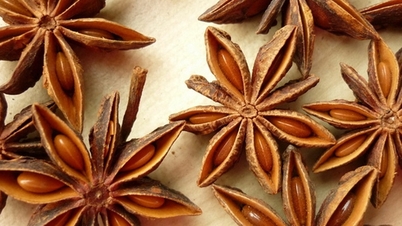Experts say that cold weather can raise blood pressure and increase the risk of stroke.
Here's what doctors explain you can do to prevent stroke, according to NBC4 Washington.
Cold weather can cause high blood pressure, which is a major risk factor for stroke and heart attack.
Doctors say the best thing to do in winter is to stay warm.

Experts say cold weather can raise blood pressure and increase the risk of stroke.
Dr. Joshua Willey, associate professor of neurology at Columbia University and a neurologist at the Stroke Service at NewYork-Presbyterian Hospital (USA), said: "It's best to dress warmly enough to keep your body temperature higher. This is mainly because if you get cold and shiver, your body puts a lot of stress on itself."
Dr. Willey said it's especially important to remember this when engaging in outdoor activities: wear layers of clothing and keep your upper body warm to help blood flow to your extremities.
He said: If you have problems with blood circulation to your legs, always wear warm shoes and socks to ensure adequate blood flow to your legs, according to NBC4 Washington.
Although you can't change the weather, you can reduce the risk factors. One study showed that 80% of strokes are preventable.
Here are the steps doctors recommend to prevent stroke:
Control health problems such as high blood pressure, atrial fibrillation, type 2 diabetes, and high cholesterol.
Control high blood pressure. High blood pressure is a significant risk factor for stroke, in particular. Therefore, it is important to monitor blood pressure regularly and take steps to keep it at a healthy level.
Control diabetes. Diabetes can contribute to atherosclerosis (narrowing of the arteries) and may increase the risk of stroke. People with diabetes must control their blood sugar levels through a healthy diet, regular exercise, and taking medication as prescribed by their doctor, according to Health Shots.
Eat healthily
Focus on a diet rich in fruits, vegetables, whole grains, and lean protein, while reducing salt intake. Add foods rich in omega-3 fatty acids, such as fatty fish, nuts, and walnuts. Omega-3s have anti-inflammatory properties that can help reduce the risk of stroke.
Maintain a regular exercise routine.

These are especially important to remember when engaging in outdoor activities. Wear layers of clothing and keep your upper body warm to help blood flow to your extremities.
Regular exercise improves blood flow to the brain, reduces the risk of high blood pressure, and helps maintain a healthy weight, all of which help lower the risk of stroke. Aim for at least 150 minutes of moderate-intensity exercise per week, such as brisk walking, swimming, or cycling.
Reduce alcohol consumption.
Drinking too much alcohol can lead to high blood pressure and increase the risk of stroke.
Do not smoke.
Smoking is a major risk factor for stroke. The chemicals in cigarette smoke can damage blood vessels, raise blood pressure, and promote blood clot formation. Quitting smoking is one of the most effective steps you can take to improve your overall health and reduce your risk of stroke.
Get enough sleep. Chronic sleep deprivation increases the risk of stroke and cardiovascular disease. Aim for 7-9 hours of sleep each night and establish a regular sleep routine.
Drink enough water.

Make it a habit to drink enough water even if you don't feel thirsty.
Dehydration can make blood thicker and more prone to clotting. Make it a habit to drink enough water even if you don't feel thirsty, according to Health Shots.
Stress management
Chronic stress, which can contribute to high blood pressure and increase the risk of stroke, is crucial for overall health. Meditation, deep breathing exercises, cultivating hobbies, and spending time with family and friends can help relieve stress.
Recognizing the signs of stroke early
It's also important to be alert to the signs of a stroke. If you experience problems with balance or vision, drooping face, weakness in your arms, or slurred speech, seek immediate medical attention.
Source link




![[Photo] Prime Minister Pham Minh Chinh receives Lao Minister of Education and Sports Thongsalith Mangnormek](/_next/image?url=https%3A%2F%2Fvphoto.vietnam.vn%2Fthumb%2F1200x675%2Fvietnam%2Fresource%2FIMAGE%2F2025%2F12%2F16%2F1765876834721_dsc-7519-jpg.webp&w=3840&q=75)
![[Image] Leaked images ahead of the 2025 Community Action Awards gala.](/_next/image?url=https%3A%2F%2Fvphoto.vietnam.vn%2Fthumb%2F1200x675%2Fvietnam%2Fresource%2FIMAGE%2F2025%2F12%2F16%2F1765882828720_ndo_br_thiet-ke-chua-co-ten-45-png.webp&w=3840&q=75)
![[Live] 2025 Community Action Awards Gala](/_next/image?url=https%3A%2F%2Fvphoto.vietnam.vn%2Fthumb%2F1200x675%2Fvietnam%2Fresource%2FIMAGE%2F2025%2F12%2F16%2F1765899631650_ndo_tr_z7334013144784-9f9fe10a6d63584c85aff40f2957c250-jpg.webp&w=3840&q=75)
![[Photo] Prime Minister Pham Minh Chinh receives the Governor of Tochigi Province (Japan)](/_next/image?url=https%3A%2F%2Fvphoto.vietnam.vn%2Fthumb%2F1200x675%2Fvietnam%2Fresource%2FIMAGE%2F2025%2F12%2F16%2F1765892133176_dsc-8082-6425-jpg.webp&w=3840&q=75)





























































![[Photo] Prime Minister Pham Minh Chinh attends the Vietnam Economic Forum 2025](https://vphoto.vietnam.vn/thumb/402x226/vietnam/resource/IMAGE/2025/12/16/1765893035503_ndo_br_dsc-8043-jpg.webp)






































Comment (0)